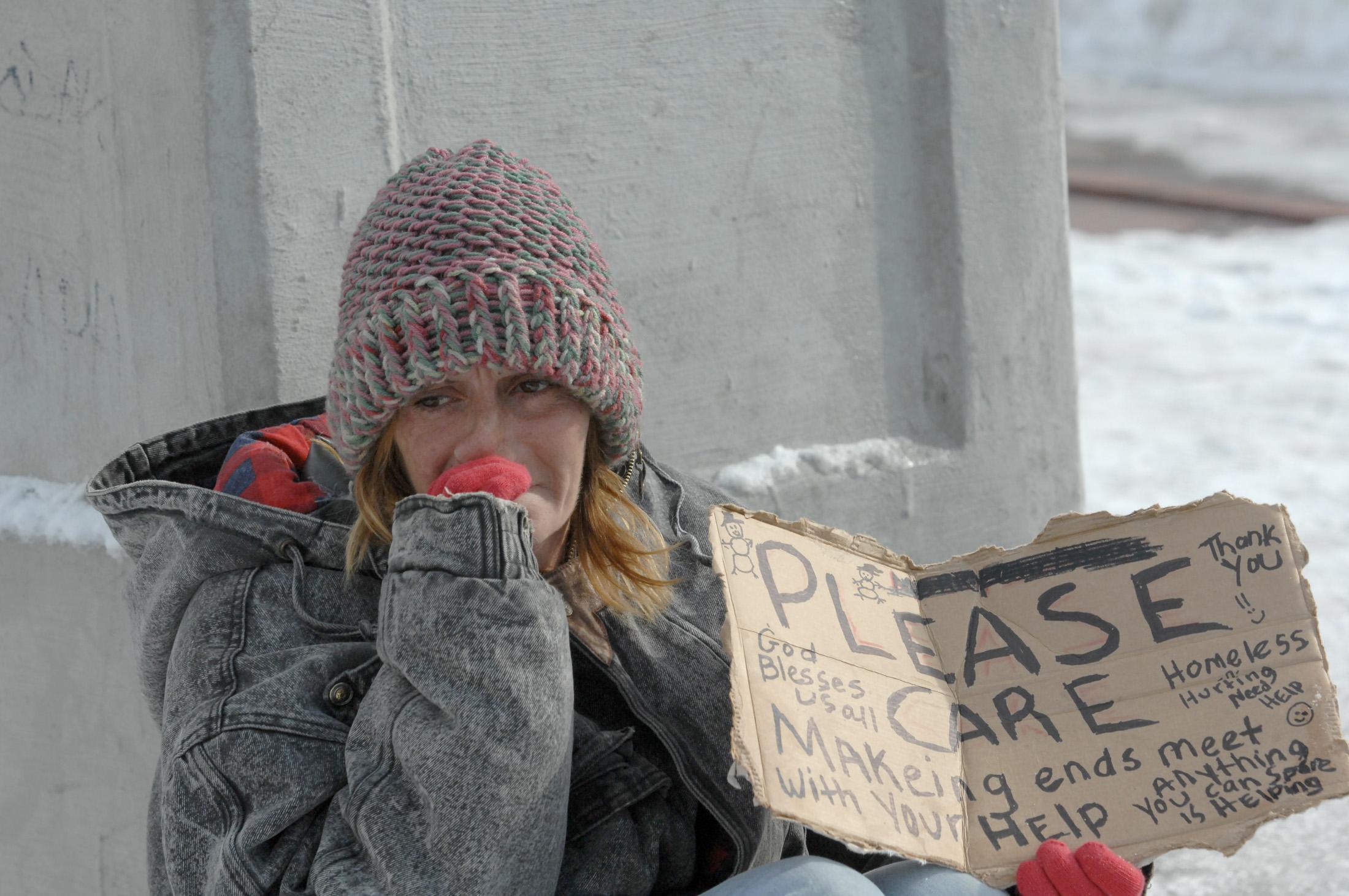
Cities and towns across Colorado have sought to crack down on what's called "aggressive" panhandling. Laws in some places make it illegal to ask for money after sunset. Or to panhandle at a bus stop. Or to loiter for the purpose of begging. The American Civil Liberties Union of Colorado says the ordinances are unconstitutional -- and is winning its argument.
Government officials are scrambling to scrap and/or re-write laws in Denver, Grand Junction, Boulder, Fort Collins and elsewhere. In Colorado Springs, police have stopped enforcing much of the city’s panhandling ordinances. And the city attorney's office says its looking at throwing out some criminal cases “where appropriate.”
ACLU-Colorado Legal Director Mark Silverstein told Colorado Matters host Ryan Warner that such laws violate the first amendment because they ban “peaceful, polite, non-threatening requests for charity.” Click the audio player above to hear the conversation, and read highlights below.
On what the court ruling said:
“Requests for charity are expressions protected by the first amendment. This is true, whether it’s an organized charity or someone simply asking for personal assistance. And really, the court spoke eloquently about the message that’s communicated by a solitary, humble begger asking for assistance. The court said, ‘A request for money conveys conditions of poverty, homelessness and unemployment, as well as a lack of access to medical care, re-entry services, mental health support for veterans. The city’s attempt to regulate this message is an attempt to restrain the expression of the conditions of poverty to other citizens.’ ”
On the possible punishments:
“Usually, a city will make it a misdemeanor. Which means it can be punished by up to a year in jail and up to a $2,500 fine. .... I don’t know of any sentences that are that harsh. But we have seen in Colorado Springs people being sentenced for 90 days for panhandling.”
On cities’ defense of their laws:
“Grand Junction said these measures are necessary to protect public safety, to protect people from being approached in situations where they feel vulnerable and where they feel that an approach is aggressive. And the court looked for evidence that a request for assistance at night, or near an ATM machine, is itself so threatening to public safety that the city could ban the speech. ...
“On a public street, we can’t regulate what people say -- even to strangers. And I think that we have to put up with speech that might be irritating or might be annoying in order to preserve the freedom of expression.”
On Colorado Springs’ pullback:
“In Colorado Springs, the two panhandling ordinances exempt what we call passive panhandling; merely sitting with a sign that invites charity. … We found evidence that hundreds of citations were written for people merely holding a sign. The police were enforcing the panhandling ordinances against people who weren’t violating those ordinances. The city prosecutors, instead of dismissing those citations, were prosecuting. And the municipal court was entering convictions and imposing sentences. ...
“The city attorney really took the dramatic step of issuing a two-page bulletin to police instructing them to stop writing citations for one of the ordinances, pending a review by the city attorney, and forbidding citations on multiple provisions of another. That was a welcome first step.”
On what laws the ACLU would find acceptable:
“Cities have provisions that get at what is truly aggressive solicitation. We have not challenged those. We don’t object to carefully, narrowly targeted ordinances that prohibit truly aggressive, intimidating, menacing, coercive solicitations that actually invade the rights of others. ...
“Cities need to think about solutions that really get at the root cause of homelessness and poverty. Policing is not the answer. … Resources need to be redirected to housing and services.”








